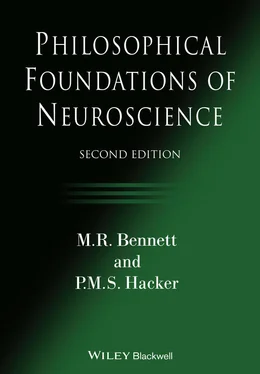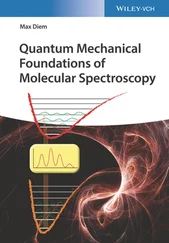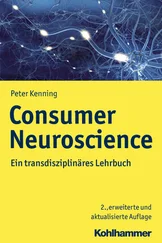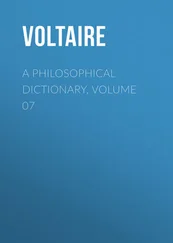2 2D. Noble, ‘Biological computation’, in Encyclopedia of Life Sciences, http://www.els.net( Nature Publishing Group, London, 2002); D. Noble, ‘The rise of computational biology’, Nature Reviews Molecular Cell Biology, 3 (2002), pp. 460–3. See also Novartis Foundation, In Silico Simulation of Biological Processes, Novartis Foundation Symposium, vol. 247 ( John Wiley, London, 2002).
Denis Noble CBE FRS hon FRCP
Professor of Cardiovascular Physiology at Oxford University
Secretary-General, International Union of Physiological Sciences (1993–2001)
Acknowledgements to the Second Edition
In the course of writing this expanded second edition, we have benefited greatly from the advice and constructive suggestions of many friends and colleagues. We are grateful to Hanoch Ben-Yami, Anthony Kenny, Parashkev Nachev, Hans Oberdieck, Juan Pascual, Herman Philipse and Gabriele Taylor. They all read one or more of the new chapters or sections and gave us their helpful comments for which we are much indebted.
M. R. B.
P. M. S. H.
Acknowledgements to the First Edition
Many people have assisted us in writing this book, and we have benefited from their advice, critical comments and constructive suggestions. We are grateful to Dr Hanoch Benyami, Professor Jonathan Dancy, Professor John Dupré, Dr Hanjo Glock, Professor Oswald Hanfling, Professor Paul Harris, Dr Tim Horder, Professor Andrew Parker, Professor Herman Philipse, Dr John Richardson, Wolfram Schmitt and Professor Stuart Shanker for their helpful comments on one or more (sometimes many more) chapters of the book. We are especially indebted to Dr John Hyman and Professor Hans Oberdiek, who read and commented constructively on the whole text. We thank Sir Anthony Kenny, Professor Sir Peter Strawson and Professor Georg Henrik von Wright for their encouragement and moral support throughout the writing of this book. We are grateful to Jean van Altena for copy-editing our typescript with her characteristic skill, tact and good humour.
Chapters 1 and 2 are a rewritten version of a review article entitled ‘The motor system in neuroscience: a history and analysis of conceptual developments’, published in Progress in Neurobiology , 67 (2002), pp. 1–52. Parts of chapters 3, 4 and 5 were published in an article entitled ‘Perception and memory in neuroscience: a conceptual analysis’, in Progress in Neurobiology , 65 (2001), pp. 499–543. Parts of chapter 10were published in an article by Hacker entitled ‘Is there anything it is like to be a bat?’ in Philosophy , 77 (2002), pp. 153– 70. We thank the editors of these journals for permission to republish this work.
M. R. Bennett, University of Sydney
P. M. S. Hacker, St John’s College, Oxford
Introduction to the First Edition
Philosophical Foundations of Neuroscience presents the fruits of a cooperative project between a neuroscientist and a philosopher. It is concerned with the conceptual foundations of cognitive neuroscience – foundations constituted by the structural relationships among the psychological concepts involved in investigations into the neural underpinnings of human cognitive, affective and volitional capacities. Investigating logical relations among concepts is a philosophical task. Guiding that investigation down pathways that will illuminate brain research is a neuroscientific one. Hence our joint venture.
If we are to understand the neural structures and dynamics that make perception, thought, memory, emotion and intentional behaviour possible, clarity about these concepts and categories is essential. Both authors, coming to this investigation from very different directions, found themselves puzzled by, and sometimes uneasy with, the use of psychological concepts in contemporary neuroscience. The puzzlement was often over what might be meant by a given neuroscientist’ s claims concerning the brain and the mind, or over why a neuroscientist thought that the experiments he had undertaken illuminated the psychological capacity being studied, or over the conceptual presuppositions of the questions asked. The unease was produced by a suspicion that in some cases concepts were misconstrued, or misapplied, or stretched beyond their defining conditions of application. And the more we probed, the more convinced we became that, despite the impressive advances in cognitive neuroscience, not all was well with the general theorizing.
Empirical questions about the nervous system are the province of neuroscience. It is its business to establish matters of fact concerning neural structures and operations. It is the task of cognitive neuroscience to explain the neural conditions that make perceptual, cognitive, cogitative, affective and volitional functions possible. Such explanatory theories are confirmed or infirmed by experimental investigations. By contrast, conceptual questions (concerning, for example, the concepts of mind or memory, thought or imagination), the description of the logical relations between concepts (such as between the concepts of perception and sensation, or the concepts of consciousness and self-consciousness), and the examination of the structural relationships between distinct conceptual fields (such as between the psychological and the neural, or the mental and the behavioural) are the proper province of philosophy.
Conceptual questions antecede matters of truth and falsehood. They are questions concerning our forms of representation , not questions concerning the truth or falsehood of empirical statements. These forms are presupposed by true ( and false) scientific statements and by correct ( and incorrect) scientific theories. They determine not what is empirically true or false, but rather what does and what does not make sense. Hence conceptual questions are not amenable to scientific investigation and experimentation or to scientific theorizing. For the concepts and conceptual relationships in question are presupposed by any such investigations and theorizings. Our concern here is not with trade union demarcation lines, but with distinctions between logically different kinds of intellectual inquiry. (Methodological objections to these distinctions are examined in chapter 14[ chapter 17in this edition].)
Conceptual questions antecede matters of truth and falsehood. They are questions concerning our forms of representation , not questions concerning the truth or falsehood of empirical statements. These forms are presupposed by true ( and false) scientific statements and by correct ( and incorrect) scientific theories. They determine not what is empirically true or false, but rather what does and what does not make sense. Hence conceptual questions are not amenable to scientific investigation and experimentation or to scientific theorizing. For the concepts and conceptual relationships in question are presupposed by any such investigations and theorizings. Our concern here is not with trade union demarcation lines, but with distinctions between logically different kinds of intellectual inquiry. (Methodological objections to these distinctions are examined in chapter 14[ chapter 17in this edition].)
Distinguishing conceptual questions from empirical ones is of the first importance. When a conceptual question is confused with a scientific one, it is bound to appear singularly refractory. It seems in such cases as if science should be able to discover the truth of the matter under investigation by theory and experiment – yet it persistently fails to do so. That is not surprising, since conceptual questions are no more amenable to empirical methods of investigation than problems in pure mathematics are solvable by the methods of physics. Furthermore, when empirical problems are addressed without adequate conceptual clarity, misconceived questions are bound to be raised, and misdirected research is likely to ensue. For any unclarity regarding the relevant concepts will be reflected in corresponding unclarity in the questions, and hence in the design of experiments intended to answer them. And any incoherence in the grasp of the relevant conceptual structure is likely to be manifest in incoherences in the interpretation of the results of experiments.
Читать дальше












